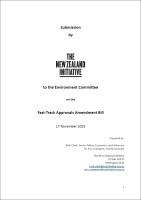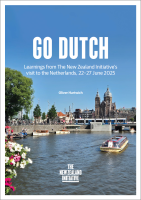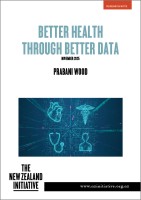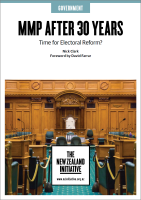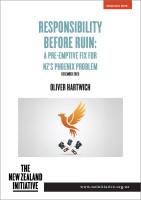
Responsibility Before Ruin: A pre-emptive fix for NZ’s phoenix problem
A new approach to director accountability could prevent hundreds of millions of dollars in tax debt from becoming unrecoverable by requiring directors to act early when financial distress emerges. The research note, 'Responsibility before ruin: A pre-emptive fix for NZ's phoenix problem', addresses companies that accumulate large tax debts before dissolving, sometimes only to restart under a new name. Read more




